Dear all,
this week Prof. Kiesow will introduce us to the "Poetry of Law" and to the connections between Law, Literature and Archtecture, while discussing Orson Welles' famous adaptation of Kafka's "The Trial". Here more information about the lectures and about Prof. Kiesow's c.v.:
First Lecture on :
The Poetry of Law. Modernity, Architecture and Violence
It often seems that law is the main focus of the New Europe. Legal guarantees and procedures are primary conditions for accession states; a European Constitution was widely disputed and finally adopted, even under another name, with less simple symbolic but more complicated contractual legalism; without democracy and a constitutional state nothing seems to imagine in Europe, in our hyper-modern Europe which, over two decades, has seen a reunification (for example, in Germany) and at the same time a new fragmentation (for example, in the Balkans). The New Europe is being driven not just by economic (wealth), political (participation), and touristic (mobility) hopes, but also by legal ambitions. These concern justice, or at least legal procedures, i.e., the dual achievement of "democracy and law", in brief, the constitutional state. This is where history, more precisely, an old history of law, comes to the minds of the propagandists of the Europe of Law or the Law of Europe. In the opinion of these eager and highly educated legal-culture-Europeans, it is above all old Roman law, or rather the Ius Commune of the modern era that is based on it (e.g. Kötz, Zimmermann, most recently the German constitutional judge Di Fabio), which forms the (peaceful, cultural, civic, economic, constitutional) basis of the modern, and especially of the New Europe – a specific form of (legal) memory culture.
But which law, which kind of law, do the optimistic and historically-minded law-culture-Europeans (not only jurists and historians, but also politicians and publicists everywhere) imagine or remember? A law that is established, that acts as a guarantee, one could almost say a friendly and tangible law. A law which people can have, on which they can rely. But is this idyll of the law, this positive image of the law, this hope in the law – nurtured by history - not a deception, a cobbled-together memory, a fabrication which fails to recognise the real aspect of modern (and in particular of ancient) law? In order to question this willing deception, this almost folkloric idea of an established European law, it may be useful to reflect on the foundations of the law, its theory and its history in Europe.
There were (at least) three fields of Modern Law: the natural law of law, the alphabet of law, and the positive law. The examination of past notions of a scientifically based and developed law as well as the past and present attempt to order legal knowledge in Europe as well as the raise of positive law are, though not only, a story of the failure of modern law. On the one hand, the failed attempt to give law a secure foundation comparable to natural laws; on the other hand, the failed effort to tame a jurisprudence already perceived by the ancients as a collection of fragments and to offer at least a reliable arrangement of the eternally antagonistic laws, jurisdictions and doctrines; on the third hand, the failed effort to put the diverse jurisprudences into the prison of the LAW, given by a state.
A Poetry of Law aims to highlight the, as it were, positive side of the long history of law as ambiguous, uncertain, disorderly and fragmentary. One observation repeatedly made in the context of analyses of the law as based on natural law and order still remains surprising and in need of explanation: since antiquity the law has been perceived as something precarious, for which reason it has been divided and collected (digests), rearranged and set into a whole (pandects), confined in the margins of (medieval) glosses and commentaries and at the same time fixed as text. In the modern era it has been built up successively on concepts either of God, nature, or reason, and finally bounded by systems, science, and new laws. Yet the long history of attempts to secure this precarious law has always ended in the contemporary ascertainment that the law remained precarious and so had to continue to be secured: a process of uncertainty, certainty, uncertainty, certainty, and so on, that continues to this very day. The following is also surprising: Why has the law not long since lost its function of rendering the expectations of society members towards one another calculable, of allaying conflicts or exerting power "in a civic manner", especially as the law is obviously a very dubious fly-by-night? Why is the law still highly regarded in society, although contrary to what people expect of it and it expects of itself, it is perhaps the functional system that is most strongly based on uncertainty? Why is it that the constitutional state is regarded as the apotheosis of the historical development of society – as can be observed yet again in recent European history and as expressed not least in the demands made of EU accession candidates in terms of (not just human) rights – despite the fact that uncertainty is thus even installed as a fundamental principle of the modern, just, social state?
Perhaps these interrogative paradoxes can be unpicked if the poetic constitution of the law is focused on. The Poetry of Law aims to observe this from a historical, philosophical, and theoretical viewpoint. In the law itself and at its core, namely in jurisprudence, both the facts and the norm are constantly being newly produced. This takes place in the argumentative strategies of the parties in a legal battle and in the final decision of the judge, meaning that in the law, decisions are made, and reality is not recognised as such, but recognised only as lawful. In this sense, the law constantly exhibits uncertainty and ambiguity, that is, not the application of a fixed rule and thus the extraction of a clandestinely fixed meaning, but its construction, its poeisis.
This poietic principle of the law rests on the art of those jurists who "make" the law to also tame it. The triad of doctrine, jurisdiction and legislation tries to tame the huge surplus of (different and contradictory) meanings and possibilities. This produces another meaning which further feeds the surplus; what comes out of this legal business in the end is always a newly made addition.
A surplus of meanings: that is also the fundamental law of poetry and another reason for The Poetry of Law. To write such a poetry of law would run counter to the abundant ideas currently in circulation, above all in North America, about Law and Literature or Law as Literature (Dworkin, Fish, Posner, White, Ziolkowski). Historically (since the 1970s), L and L was a counter movement to the economic analysis of law and kept to the traditional trail of an, at best, learned contemplative analysis of legal matters in literature (Shakespeare, Kleist, Balzac, Kafka …). L as L seems more interesting, if not particularly innovative. Here, literary strategies and procedures are sought in the law itself, for example, by observing how lawyers "direct" the biography of the accused, which is so important for the length of the sentence, as a dramatic piece designed to impress the jury, or when literary tropes and arrangements are drawn from legal, judicial facts. Ultimately, L as L had nothing much to offer that is new, compared to the old European theory of legal argumentation.
The Poetry of Law examines the thesis whether it is not the poetry written into law, whether it is not the equivocal meanings of the law, whether it is not the law's rhetorical qualities that make the law so attractive, so fungible, and so readily instrumentalised in many different historical and contemporary societies. And is it not least this fungible aspect of the law which, in the European history of the last 200 years, runs quite contrary to the hopes that have been, and still are, placed in that law?
The Europe of Law so often evoked in ceremonial addresses and Festschriften, in political speeches and at European symposia, is a chimera, an artistic product. A study of the historical and current foundations of a Poetry of Law will perhaps urge people to discover the decisive aspect of law in the non-materially established foundations of a European law, and to see in the various laws, the various legal areas, the various literatures and architectures, the various interpretations, the various legal histories, the current legacy of Europe's legal memory. And perhaps it will be possible by this theory of fragmented law to formulate historically and theoretically nurtured arguments to show how legal globalisation does not mean universalism and universalism on a global level is what we have to fear: the elimination of differences. In such a legally uniformed world the poetry of law would come to his end.
Second lecture on:
The Silence of Laws. Introduction to The Trial from Orson Welles (with projection of the movie)
No abstract! (Art is “abstract-less”)
Third lecture:
Discussion
READINGS:
1) Franz Kafka, The Trial
2) Rainer Maria Kiesow, Law and Life, in: "Politics, Metaphysics, and Death. Essays on Giorgio Agamben’s Homo Sacer", hrsg. von Andrew Norris, Durham, London 2005 (Duke University Press), pp. 248-261.
Rainer Maria Kiesow
(*14.12.1963 in Frankfurt am Main).
1982-1988: Studies of Law in Frankfurt am Paris (Paris II).
1988 and 1995: First and Second Juridical State Examination .
1995: Ph.D in law with a thesis on “The Law and the Laws of Science”.
2003 and 2007: Habilitation in Modern legal history, Legal theory, Legal philosophy and Private Law (postdoctoral thesis “The Alphabet of the Law” [Das Alphabet des Rechts] and “Loans in the society of Risks” [Kredite in der Risikogesellschaft].
Since 1995: Chairman of the Leunclavius Society (Löwenklau Gesellschaft e.V.), Frankfurt am Main, publishers of the Legal History Journal (Rechtshistorisches Journal) and the series Research on Byzantine Legal History (Forschungen zur byzantinischen Rechtsgeschichte).
Since 1996: Tenured Fellow at the Max Planck Institute for European Legal History in Frankfurt am Main.
Since 2000: Member of the comission of the German-French translation programme of the Maison des Sciences de l’Homme, Paris.
1992 – 2001: Editor in charge, the Legal History Journal (Rechtshistorisches Journal).
Since 2002: Editor in charge, Legal History (Rechtsgeschichte. Journal of the Max Planck Institute for European Legal History).
Since 2004: Associate Professor at the Faculty of Law, University of Frankfurt am Main
2000 – 2005: Founding member of the Young Academy (at the Berlin-Brandenburg Academy of Sciences and the German Academy of Natural Sciences Leopoldina). 2000-2002 Chairman of the Young Academy.
Since 2007: Co-Founder and Director, Myops. Stories from the World of Law (Myops. Berichte aus der Welt des Rechts; trimestrial journal at the C.H.Beck Verlag, Munich).
Visiting Professor at the École des Hautes Études en Sciences Sociales, Paris ; the Maison des Sciences de l’Homme, Paris; University of Lecce, Italy.
Law and the Humanities at Roma Tre
The blog of the "Law and the Humanities" course of lessons at the Roma Tre University (Law Faculty)
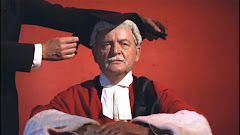
Alfred Hitchock's "Dial M for Murder" (1954)
Monday, 14 April 2008
Subscribe to:
Post Comments (Atom)

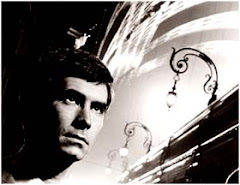

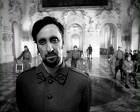
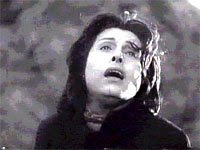
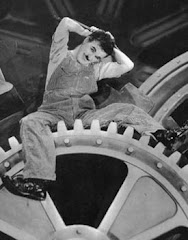
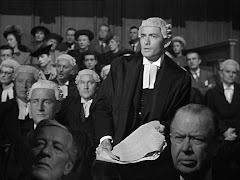

No comments:
Post a Comment